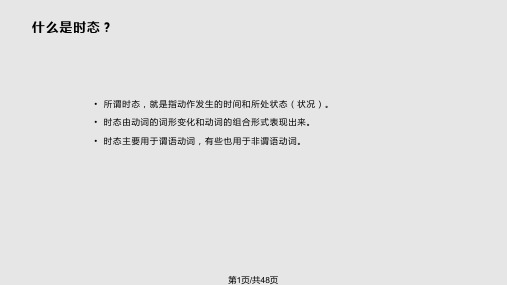I’m afraid he’s dying soon. =I’m afraid he’ll die soon.
I was told that she was leaving for New York the next day. = I was told she would leave for New York the next day.
3. 一般将来时 (in future / in the future / from now on / soon / in 5 years / next year / in the 22nd century…)
构成法: will/shall + 动词原形
In future, we’ll pay more attention to the protection of our environment.
3. 有部分动词(主要是短暂性动作动词)可以用进行时代替 将来时,即:用现在进行时代替一般将来时,用过去进行时 代替过去将来时. (也可用将来时)
Are you doing anything special this evening ? =Are you going to do anything special this evening?
Yesterday afternoon, he was painting me a picture. Now I ‘m going to see whether he has finished it. (强调paint这一动作过去在进行,但未交代是否已做完)
-----Why didn’t you answer my phone call last night ?
构成法: had + 动词过去分词





